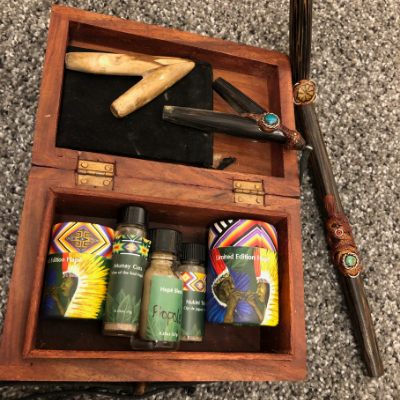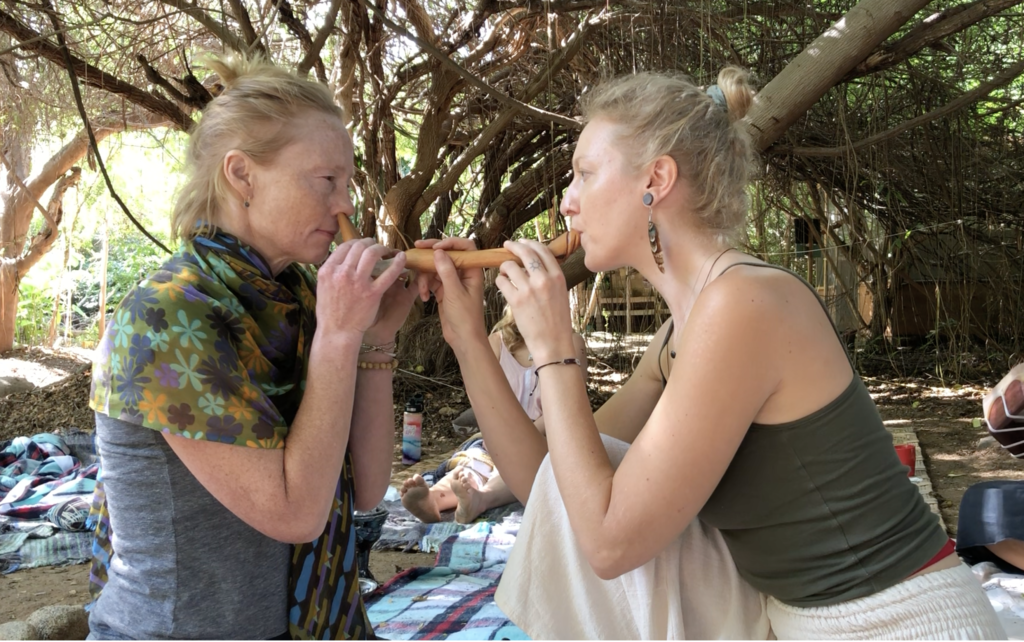
Ceremonial Hapé (also known as Rapé) is a sacred shamanic medicine prepared by indigenous tribes of South America, primarily found in Brazil and Peru. Pronounced ‘haa-pay’ in English. Indigenous Hape’ is used for deep connection to the spirits, animals and Mother Nature. It can be very cleansing and powerfully healing.
Hapé is the preparation of powdered medicinal herbs, often with a tobacco base. Hapé is typically made with mapacho – Hapé elicits a feeling of alertness and elevation that surpasses most other natural plant-based effects.
The effects of hapé are experienced rapidly and intensely because the powdered snuff is administered through the nose. The practice of consuming powdered plant medicines through the nose is much more ancient than we realized (dating from the pre-Columbian days) and was first observed among the Brazilian indigenous tribes.
Indigenous tribes in the Amazon basin continue to use hapé in all aspects of life, from formal ritual use in rites of puberty, initiation, festivals, social gatherings and healing ceremonies, to simply tuning into Nature and the healing power of sacred plant medicines alone or with friends.
From the indigenous point of view, hapé is a sacred shamanic snuff medicine with profound healing effects. Hapé is made from different medicinal plants for different purposes – to induce visions, to have energy, and to enhance the senses with the aromatic fragrance of the plants used in the blend. Given that there are myriad medicinal plants you can blend into hapé, there are many various hapé recipes in existence – and these recipes are often closely guarded by the tribes as secrets.
Sharing hapé – is traditionally a ritualistic practice among Amazonian tribes that may include specific chants to activate the force of the hapé and to confer the healing power of the forest upon the hapé recipient.
